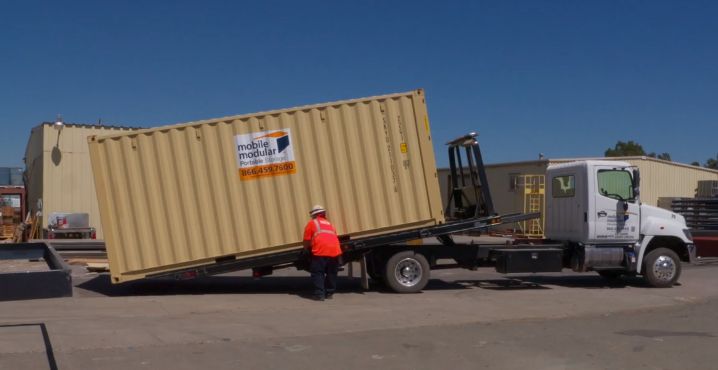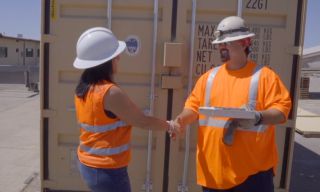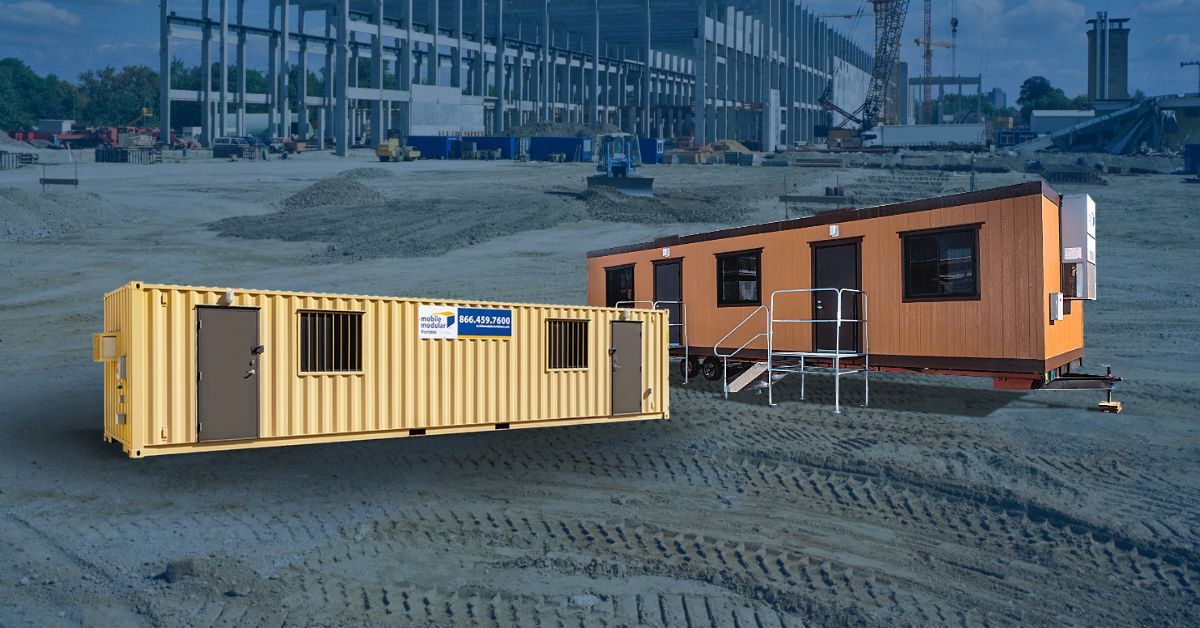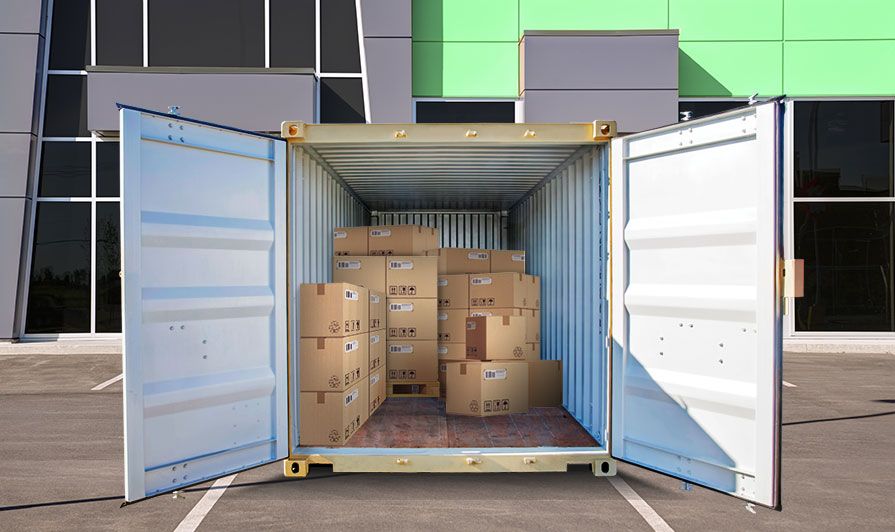- Rent, Lease, or Purchase
- |
July 20, 2020
10 Important Questions to Ask Before Buying a Conex Container


Conex or shipping containers can provide affordable solutions to needs around portable office space, shelters, garage space, commercial storage, and more. Of course, when it comes to purchasing a container, there’s a lot more to consider outside of the costs.
Every business requires a unique setup, which means you need to ask questions concerning the dimensions, condition, and other features that make it the right fit for your site before buying a container. Read on to learn more about the process to better navigate your journey.
Here are 10 common questions people ask when deciding to purchase conex containers:
What’s the Standard Size of a Conex Container?
Standard conex box sizes are 20 feet and 40 feet, in terms of length. They have an exterior height of 8 ft. 6 in., and a width of 8 ft.
However, shipping containers are also available in the following dimensions:
- 10 feet containers
- 24 feet containers
Business owners should remember that internal dimensions determine the actual storage space you get when you buy a shipping container. Be sure to compare and confirm all internal and external container dimensions.
What Is the Weight of a Shipping Container?
The weight of the shipping container depends on the material of construction and the container size. Here are some examples:
- The average weight of a 20-feet container is nearly 4,980 lbs. and can carry a maximum payload of 24 tons.
- The average weight of a 24-feet container is nearly 5,840 lbs. and can carry a maximum payload of 24.21 tons.
- The average weight of a 40-feet container is nearly 8,550 lbs. and can carry a maximum payload of 29 tons.
How Long Do Shipping Containers Last?
Containers can retain 50% of their value even after 25 years if they are cared for properly. Here are some common examples that can affect the life span of a container:
- The conditions in which containers are placed and the kind of weather (temperature, humidity, etc.) they are exposed to.
- The frequency of use, which causes wear and tear.
- The frequency of movement from one location to another may lead to damages during transit.
- The frequency of maintenance and repair in the case of used containers.
What’s Better – New, Used, or Containers for Rent?
How do you decide among new, used, or rented shipping containers? It all depends on your budget and the duration you have a need for extra space. Containers are typically categorized as ‘one-trip’ which means the container has made only one cargo trip across the ocean (as good as new, you could say) or ‘used’ containers that have made multiple trips across the ocean.
Here are some points that can help you decide:
- Buy a new conex container - If you plan to use it for an extended time (beyond 3 years); buying is a better option because you will have access to a hi-quality, durable, and customizable container.
- Buy a used conex container – Purchasing a used container makes sense if you do not need to move the container frequently.
- Rent a conex container - If you need a container for an undetermined amount of time, and do not require any major modifications, go for renting. You can accessorize the container and add shelves, pipe racks, or plan tables even while renting.
Let’s Take a Look at the Most Common Types of Shipping Containers and Their Uses.
Shipping containers are a robust storage option for most equipment and material. Depending on the type of material or equipment you’re storing, it's important to figure out which container is best suited for your specific needs. Here are the five types of containers and the most common uses for each:
-
High-Security Storage – valuables that won’t be affected by extreme temperature (hot or cold).
-
Insulated Storage – files, textiles equipment that could be damaged due to extreme temperatures.
- Refrigerated Storage – perishables such as surplus produce, beverages, and more.
- Office Storage – guard shacks, office space, medical stations, and ticket booths.
- Office Combo Storage – parts storage and distribution, temporary retail space, and more.
Conex containers are weather-resistant and they can provide heating and air-conditioning if they are being used for portable office spaces.
What Should You Expect When Buying Used Containers?
Type of Used Containers:
There are different categories of used containers. The purchase price of each category varies with their condition and age.
- Cargo-worthy containers – These are some of the best-quality used containers that have certified quality for shipping. They may have minor dents, rust, and shipping markings.
- As-is containers – These conex containers may have damaged roofs or floors. They don’t come with warranties and are priced accordingly.
You will also find wind and water-resistant containers that have expired certifications, however, they remain robust and will continue to perform well.
Use This Checklist When You’re Buying Used Conex Containers:
- Check the shipping container roof for signs of corrosion and if it prevents water intrusion.
- Check the container floor and corners for signs of rotting or rust.
- Inspect lock mechanisms and if the door opens and closes smoothly.
- Check for condensation problems inside the container.
- Check for odor in the container that may affect certain items you intend to store.
- Consider additional costs that include but are not limited to shipping, delivery, maintenance, and painting charges.
What Kind of Site Preparation Do Conex Containers Need?
Remember the following points when you have to prepare your site for a container delivery:
- If the site is leveled and has a draining facility, the container can directly be placed on the ground.
- Do not place the container on ice, snow, or soft ground.
- In some cases, you might need cement slabs or railroad ties to support the shipping container.
- If a container is not level, you need to use wooden blocks to provide correct leveling.
The installation of shipping containers is made easier if you are working with experienced drivers and container delivery teams. If this is the first time you are ordering a conex container, talk to one of our representatives at 866-459-7600.
It helps to talk to experts in installation, site prep, and all things container delivery!
What Shipping Container Modifications Are Possible?
Total modification of containers is not provided however, our containers can be customized with:
- Plan tables
- Shelves
- Pipe racks
Note that our office containers come with the following useful features already installed:
- Air conditioning and heating
- Entrance Light
- Electric outlets
- External GFCI receptacle(s)
- Phone and data access
- Durable flooring
- R-11 Insulated walls and ceiling
Do You Need a Permit to Place a Portable Storage Container on Your Property?
Each city or country has shipping container regulations on the placement and use of containers in respective jurisdictional areas. They also have separate shipping container zoning laws. You can easily get this information from your local municipal authority. Most cities do not require a permit.
However, if your city does boast requirements concerning permits, it’s important to meet all shipping container regulations and fees associated with moving shipping containers in order to enjoy hassle-free delivery and use.
What Do You Look for in a Shipping Container Provider?
The right shipping container provider guarantees you a smooth ride in product quality, delivery, service, responsiveness, and payments. Here’s what you need to ask:
- What are the payment terms, and how transparent is the billing?
- What are the delivery costs, policies, and assistance offered? (On-time delivery/quick turnaround time/site prep for delivery)
- Do they have dedicated sales specialists or responsive customer service?
- What are the quality-check procedures? Do they have the required quality certificate like ISO?
- How is their after-sales service? (maintenance, repairs, moving containers, and other assistance)
If you are interested in buying used conex containers right away, check out our range of used containers for the price, size, and other product details.
With Mobile Modular Portable Storage, your business gets the following advantages:
- Response in typically 1 business hour
- We have our own fleet of trucks and trailers to meet your timelines without hassles.
- Conex containers delivered on your scheduled day
- 30-day rental plan instead of 28 days (two extra days)
- High-security containers available
- Containers available for disasters like hurricanes, tornadoes, and flooding
- A dedicated sales representative from start to finish (no call center)
Related Blogs



Subscribe to Our Blog
Enter your email address to subscribe to the blog and receive the notification of new posts by email.
Thank You for Subscribing to Our Blog!
Stay tuned for upcoming emails with valuable content that we hope will enhance your experience with our brand.
Both Pardot and mg360 form submissions failed.
